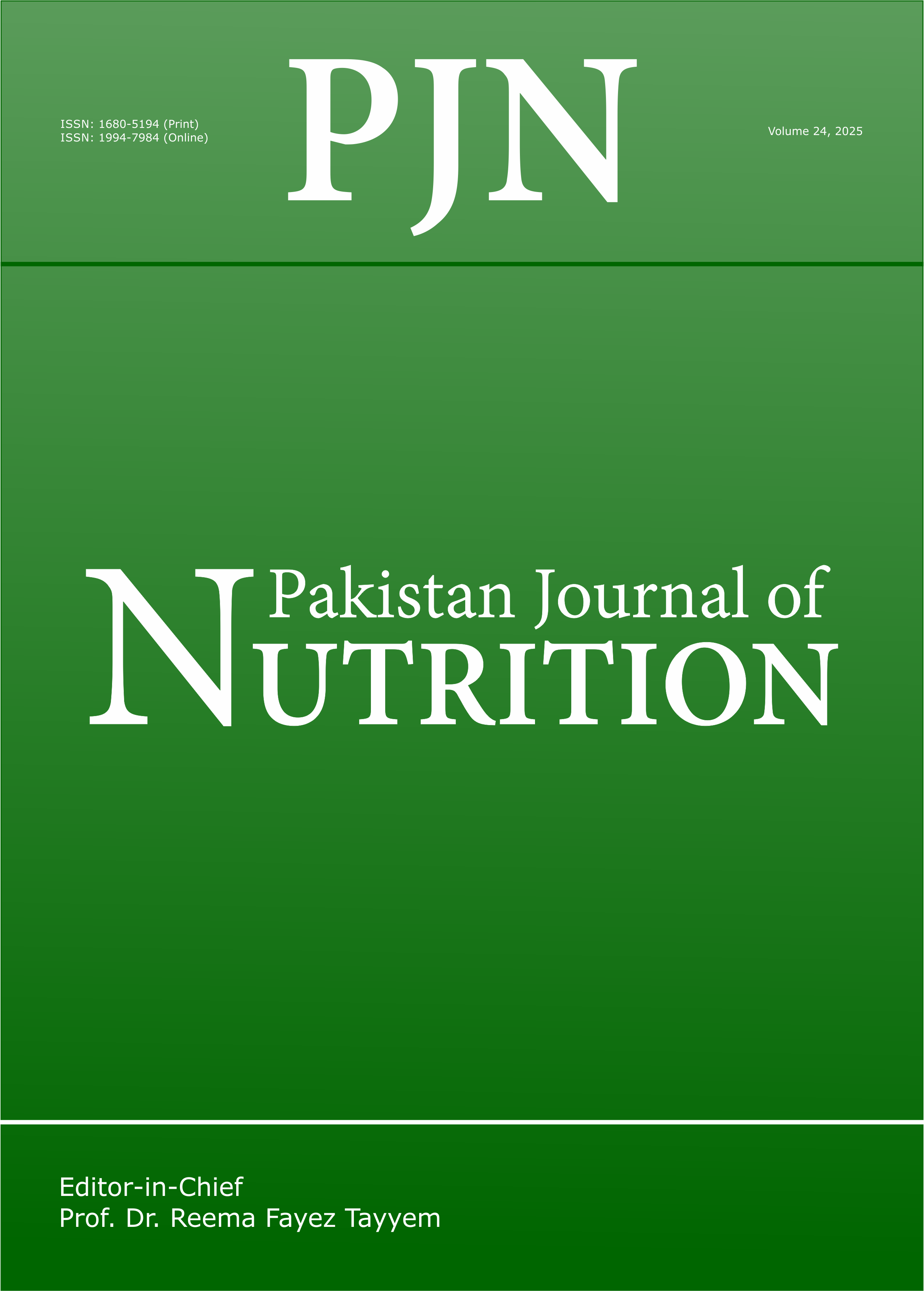An Examination of Calorie Demand Relationship in Pakistan
DOI:
https://doi.org/10.3923/pjn.2007.159.162Keywords:
Cointegration, Granger-causality, Pakistan, Per capita calorieAbstract
This paper has examined the long-run relationship between daily per capita calorie intake, per capita income and food prices for Pakistan using aggregate data 1960-2001. Cointegration analysis yields the income-calorie elasticity of 0.21, while food-price elasticity is insignificant. Thus, economic growth, as measured by increasing per capita income, has significantly improved calorie intake in Pakistan; future economic growth can alleviate further inadequate calorie intake. However, significant improvements in calorie intake cannot be made directly by food subsidies. Nevertheless, the policies that lower food prices also have the indirect effect of increasing real incomes via the income effect. So it is in this sense that food-subsidy policies may have a role in improving calorie intakes. In the context of access to food, it would be important to identify the food insecure people, which are financially poor and are unable to acquire sufficient food, even if the overall supply of food in the country is sufficient. Further, causality tests indicate a bidirectional relationship from income to calorie intake; and from calorie intake to income.
Downloads
Published
Issue
Section
License
Copyright (c) 2025 Asian Network for Scientific Information

This work is licensed under a Creative Commons Attribution 4.0 International License.
This is an open access article distributed under the terms of the Creative Commons Attribution License, which permits unrestricted use, distribution and reproduction in any medium, provided the original author and source are credited.

